|
As a child, barely a teenager, back when I read my first fantasy novel, The Sword of Shannara, I saw (and still do) see expansive potential in the fantasy genre. I had a plethora of fantastic ideas floating around in my head, and here, in this wonderful book I was reading, I saw a way to get those ideas out. I loved to draw, but it wasn't something I was passionate about, and saying my ideas out loud oftentimes came out jumbled and directionless. But writing, finally, gave me a way to get my ideas and stories to coalesce into something tangible and fantastic. I immediately began to write down my ideas, folding and organizing them into sentences, paragraphs, and chapters. I planned out my book, then another and another. I researched what it would mean to be a writer, how to hone my craft and edit my work. I learned what it meant to be a plotter rather than a pantser. I looked hard at what it would mean to become an author and how to get signed with a publisher. I knew going in it wouldn't be easy, and that finding an agent or a publisher would be a long and difficult task. I was up for the challenge. It took years and years of work to finally get my manuscript to a point where I was comfortable sending it out to publishers. So much time had passed in fact that the publishing industry was already beginning to evolve from what I'd learned growing up about what to expect. In the mid 2000's, slush piles weren't really a thing any more. Agents got your material to one of the Big 5 Publishers these days. I kept my head up and I followed the road I'd been following for years. If an agent is what it would take to get my book published, then that's where I'm going. I submitted my book to countless agents over the course of two years. I didn't get a single nibble, and I saw plenty of rejection. The biggest criticism I found was that my novel, even as a fantasy novel, at a whopping 300,000 words, was too large for a new author. But how could that be, I wondered? All the great fantasy novels I read as a kid were 200K plus words! Despite my reservations, I decided to break my manuscript up into more manageable books. After all, the road kept going ahead, and I had to adapt to the conditions. After a couple more years of editing and submitting to agents and publishers, I finally signed with Wild Child Publishing in January of 2011. I had a lot of reservations going in, mainly because Wild Child was an eBook publisher, not a traditional print publisher. Print was possible, but only if I sold a certain amount of books, and guess what, I would be a book seller. Marketing was required as a part of my contract. Wild Child helped some to sell my book, but a large amount of the marketing and selling was my responsibility. Again, this wasn't the road I was expecting, but it was the journey I signed up for and I wanted to see it through. My experience with Wild Child wasn't terrible, but it wasn't what I'd always dreamed of. There were parts of this journey that really meant something to me though. The marketing aspect rekindled my love for graphic design, which I think really helped the process. I also met Shawn Howen, my editor, who helped make me into a better writer and shape my book into what it is today. 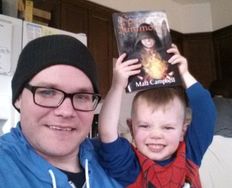 In December of 2013, my first book, Spirit Summoner, was released by Wild Child Publishing. By February 2014, enough eBook versions of my book had sold for my publisher to release it in print. I was ecstatic. Finally, my book was in paperback, and I got to hold it in my hands! Furthermore, my publisher was so happy with my performance, she agreed to release my next book in print and eBook at the same time. The road wound on, but the life of bookseller, marketer, author, and writer began to wear on me. The change happened gradually. The marketing and blog posts got monotonous and much less exciting to create and keep up on. Besides, it took a lot of time to put together! Editing, a very important aspect to the author life, was wearing me down also. I missed the writing, the actual creation process, but I found it very difficult to make the time to do this between everything else I was working on. 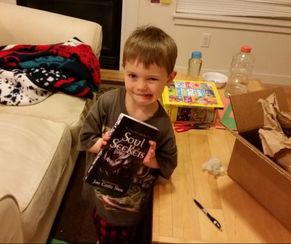 .Shortly after my second book, Soul Seekers, was released in late 2015, I got an email from my publisher stating Wild Child Publisher was closing. I understood the decision, but I felt defeated, especially since I'd worked so hard and made so many compromises. Now I wouldn't get to publish the last book in my series. My editor, Shawn, had my back, and encouraged me not to give up. She even offered to edit the final book in my series, which we're currently working through. I kept on the road I'd started all those years back, and I self-published Spirit Summoner and Soul Seekers through Amazon.com both in Kindle and paperback. I ran the same marketing game I ran with Wild Child, and that seemed to serve me well for a while. Eventually though, it sort of just fizzled out. I wasn't happy posting to Twitter, Facebook, and Instagram several days a week. I wasn't happy making up content. I wanted to write, but I wanted to stay on the road, too, and I didn't have time to do both.
I came to a decision after lots of deliberation. Once I published Devoid, the final book in my series, the road I'd started as a child was going to come to an end. It wasn't an easy decision. It actually sort of shattered my world for a while. But as I looked back at the journey I'd been on, it just wasn't the journey I'd always dreamed of. It was filled with all sorts of road blocks and detours and hazards that just weren't a part of what I'd dreamed. I'm glad I went on the journey, and I'm proud of the work I've accomplished. Regardless, the road called "Being a Published Author" is coming to an end. But even though I might be hitting the end of this road, the journey will continue. There are other roads to travel, roads more to my liking, and hopefully, roads filled with excitement, beauty, and challenges all their own. I doubt this will be the end of the Chosen of the Light either, but these stories might just be stories and nothing more. No publishing contracts or marketing schedules or Hollywood blockbuster movie deals. But I'm okay with that.
1 Comment
Years ago, I started writing a book. When I say years, I really mean decades. This book, a fantasy novel, told the story of Darr Reintol and his many, many friends as they sought out the Chosen of the Light. Like many of the books I’d been reading at the time, this was to be an epic fantasy. In true epic fashion, my story spanned thousands of years in a world rich with a culture and history of its own, with many different characters, each with their own individual stories. At the time, I believed I’d written a truly engaging book, something that any reader of epic fantasy would love.
The world of publishing did not agree. Rejection after rejection made me try another angle by seeking an agent, and again, I could find no purchase. I divided up my novel, creating three books, and after another year of submission, I finally landed a publisher and an editor. It was only then that I found what may have been the fatal flaw in my writing. Story. Story is the truth behind all that my writing does, for it is the storytelling that so fascinates me. Since before I could write, I loved telling stories, creating new worlds and things and people with my imagination. But story is what lacked in my novel as well, for in trying to pack in everything epic, I lost my narrative. When my editor, Shawn Howen, first told me how much I needed to cut from my first book, I was distraught. I insisted I needed every bit of information, every bit of history, and every odd perspective in order to make the story work. Shawn disagreed. Fortunately, she saw the story laying beneath the scattered histories and perspectives. She knew I was writing about Darr, which is very true, but I was also writing about the world of Ictar, too. What does the history of the Ancients have anything to do with how Darr feels and what actions he takes? When I tell the story from the point of view of some distant character not even connected to Darr, am I furthering Darr’s story or my own? If I view my story with Darr as linear, any time I drop into a rambling about my world’s history or another point-of-view, I’m creating a stress point in my line. With too many stress points, my line, and my story, crumbles. I suffered, but I recovered. Like the true storyteller I aspire to be, I refocused my thoughts and edited my book accordingly. I told my story about Darr. In the end, I’ve become a much better writer and storyteller, but all of these memories of revising is coming back to me because it’s happening again. Currently, I’m working on the third and final book in my series, but the story I always believed was there just isn’t there. It has become the story that never was, because I have changed as a writer, leaving me with parts that no longer fit. The solution is figuring out where the real story is, and for me, that will be a point of some frustration, but also fun. I haven’t had the chance to create new material in this book for a long time. In find the story that never was, I’m tasked with finding the story that will be. Growing up, I was involved pretty heavily with my church, and while that part of my life has passed, many of those experiences (as all experiences do) shaped me into the person I am today. So, it’s no surprise that those experiences helped shape my writing and the worlds I create. When I was in middle school, I had the amazing opportunity to travel to Jamaica on a mission trip. This was my first trip out of the country (sorry, Canada doesn’t count), and it was the farthest I’d ever flown on an airplane. Did I mention I was traveling to a third world country, one I knew next to nothing about? I was anxious, excited, and completely unsure of what to expect. So, when I met Martin, it’s no surprise that he would turn into the basis of one of my most important characters. Martin was one of the missionaries residing in Jamaica. He helped shuttle us around, introduced us to the people, and taught us about the culture and the land. I remember him being tall and intimidating, but he was charismatic in his own way. He had wide features and a deep voice, and I couldn’t help but listen to him any time he had something to say. I felt like I’d be missing something if I didn’t.
When I really got serious about The Chosen of the Light, I began rewriting and fleshing out my characters, turning them into real people. Most of my characters had always been real in my mind, so fleshing them out wasn’t too much of a problem, but there was one that I couldn’t get a grasp on. Nidic Waq, the prophet featured throughout my series, and arguably one of the most important characters. Spirit Summoner might be about Darr, but Darr is driven and guided by Nidic Waq. My problem with Nidic Waq was I didn’t have a good handle on him. He was a wizard-type character in my mind, but that’s all I really had on him. Besides, he wasn’t a wizard, he was a prophet and a Spirit Summoner. He didn’t have any human characteristics, and I knew that had to change. No one in my life really seemed to embody the characteristics I imagined he should have, and so I had a difficult time trying to make him into a “real person”. Martin, the missionary from Jamaica, finally helped me figure it out. Martin with his intimidating presence nonetheless drew me in and made me want to listen to whatever he had to say. He was the perfect basis for Nidic Waq. Of course, I gave my character my own little tweaks, making him exactly what I envisioned, but if it wasn’t for meeting Martin, I don’t know that he’d be the same character he is today. I found out a couple years later that Martin had left his position as a missionary, turning away from friends and family, but that never discouraged me. If anything, it made me realize Martin, like Nidic Waq, was human, and prone to dreams and desires. I looked at Nidic Waq in an entirely new way, as a human who’d made certain decisions that led him in a certain direction. Maybe one day, his choices will take him down a different path. Science is the lifeblood flowing through every science fiction novel. You can’t have good sci-fi without a solid foundation of science in which to build. The fantasy genre is much the same, except in place of science, a much more fluid foundation exists, namely magic. Whereas science in sci-fi draws from real world techniques and practices, magic draws from the author’s imagination. However, just because magic performs differently than science, this doesn’t mean magic can act all willy-nilly. In fact, when magic acts outside a solid system of rules, it breaks the suspension in its believability within its fantasy world.
What Is Magic? Magic functions differently throughout the many fantasy worlds. It may be a rumor, or it may be a reality, possessed by only a handful or by many. The power of magic takes many shapes and forms, ranging from simple abilities that augment a person’s senses to god-like abilities of creation and destruction. What sets apart a good magic system from a bad one is the time and thought that goes into it. Because magic takes the place of science in fantasy, and because it cannot act any way it wants, an author must define the boundaries within which their magic works, and they must write within those boundaries. Developing a Magic System Figuring out how a magic system works is an exercise in imagination. Keeping track of it can be an exercise in futility, which is why making sure you have notes is important. Normally, I can go either way on note taking in writing (although I am a known plotter), but where magic systems are concerned, I firmly believe a good one must be written down rather than remembered. Unless you’re Sheldon Cooper, you aren’t going to remember all the details about your magic system. Here are some things to consider:
Evolution Time changes everything, and just like science, the power of magic can change in time. Be aware of this when developing a magic system. If a magic system draws power from belief in its use, where will it be in a hundred years? If magic can only be used by a certain race then what happens to half-breeds? These are all things to consider even if you have no plans to expand into the future of your fantasy world. Knowing where magic comes from and where it’s going is all part of a magic system. It enables the creator to understand the system on a deeper level, which in turn adds depth to the fantasy world. All Imagination Creating and maintaining a magic system all comes down to imagination, and pushing the limits of imagination. Magic should be fluid and exciting. It should take a basic idea and push it into the fantastic. Don’t let magic control the direction of a story. It should work within the story. Therein lies real magic. Like Hansel and Gretel leaving a trail of breadcrumbs through the forest, I leave little markers for myself as I edit. They're not as tasty as breadcrumbs, but they serve their purpose. They help me find my way back to whatever story I was originally trying to tell.
While editing Book Two (and now Book Three) of The Chosen of the Light, I've been finding it difficult to keep the story focused and moving. I'm using the techniques I learned from while editing Spirit Summoner, but I'm throwing in a trick of my own: Breadcrumbs. This idea won't work for everyone. Maybe it only works for me. But I thought I'd share it anyway. If anything it'll give you some insight into my own writing process. That being said, I'm a planner when it comes to my writing. I like to know the story heading into it. I spend a good while sorting out many of the details in my head before I ever begin writing. I've tried to just let the story take me where it will, but the effects are often a disaster of plotholes. Now, I don't need every detail or even every character, but I must know the general direction of the story. You might be asking what this has to do with editing and here's what I've found. Even the best planner cannot always stick exactly to the plan. Writing is fluid, as if storytelling. Sometimes, when you finally get to your planned ending, little changes along the way have changed the overall story. When I begin editing, the first thing I do is run through the story, chapter by chapter. I give each chapter a quick perusal, then at the top of the page, I leave a comment indicating the POV and a light synopsis for what's happening. I can easily scan between chapters, giving myself a clear picture of the direction things need to take, and at the end of the book, I can tell what needs to be done to maintain the story. The breadcrumbs remain in place until the very end, right before I send off to my editor. You never know when you're going to find yourself lost in the woods of your own writing. 
Storytelling is a wonderful thing. Telling stories allows us to share feelings of love or sadness. We can share thoughts or memories, impart knowledge, or weave incredible fantasies. Figuring out how far you'll bring your audience into your story depends on a number of things, beginning with your point of view.
Are you telling this story as an omniscient narrator, giving your audience details about everyone and everything? Or are you telling this from a limited perspective, giving your audience details specific to one character?
MISSION OBJECTIVE
When beginning to write a story, I find it helpful to ask the question "What is my mission objective?" Am I looking to enlighten or entertain? Do I simply need to get a story out of my head? Is there a character itching to get out? Figuring out my mission objective is helpful in figuring out my POV, but it doesn't always get me going in the right direction. Case in point: I've been bouncing around a story for a couple of years now, a story about a young man with a peculiar superpower. When I first sat down to write this story, I did so because I had a character (and more specifically, his power) to write about, so I wrote from the first-person narrative. EX: Still, I didn't cry. I watched the gunman, my eyes burning with hatred. I wanted to make this man suffer. But I knew I had to wait. I had to be strong. My opportunity would come.
Something was always missing from this story, and I couldn't put my finger on it. I ran it through a local writing group I was working with a couple years ago, and one of the suggestions was to change to POV. Whoa. What? Change my mission objective? NEVER! But the more I thought about it, the more I began to realize what changing perspectives could do to this story. A lot of the critiques centered around the character and how limited of a character he was. In order to see his real depth, maybe I'd have to look at him from someone else's point of view.
THE LONG HAUL
As you can see, figuring out my mission objective is helpful, but not a definitive answer. My choice of POV was put to the test again when I began editing Spirit Summoner. My mission objective in writing The Chosen of the Light was to entertain and to give someone else the same spark of imagination that I'd been given so long ago. I also had another objective, one I don't share that often: I was writing it for me because this was my world, and this would be my way of making it real. What I wrote was an entire chunk of Ictarian history, retold from many different points-of-view. To me, every single word was necessary to tell the story, but my editor showed me a different side. Every time I shifted POVs, I detracted from the story. As my reader tried to figure out who's head they were in this time, they lost a little of the story. At first, I resisted this concept with a heavy heart. I didn't want to rewrite or remove chapters to accommodate one perspective. I wanted the entire story just the way I'd written it. But I believed in my editor, and I knew deep down she was right. I had to ask myself about my mission objective again. Was it really all about me, or was I writing to tell a story? Ultimately, it's both, although I decided to limit the POVs I told my story in. There's always more stories in my head to try it differently!
What's your favorite point-of-view to read in?
Stephen King has told many stories throughout his writing career. Many revolve around horrifying and oftentimes grotesque explorations into the human condition and the supernatural alike. Most would consider his writing to be strictly horror (even though that’s far from the case).
I hate to admit it, but I was one of those people. I stayed away from Stephen King’s writing growing up because I made the stupid mistake of thinking his stories would be far too scary for me. Yes. I was scared of being scared. Kids are so crazy… Of course, I was making a far grander assumption, one more damning than “judging a book by its cover”. For almost three decades, I missed tons of great stories because I didn’t think I could “handle” Stephen King, thereby misjudging him and myself. My introduction to King’s work came from a known scholar of his work, Patrick McAleer. Patrick and I have been friends since college, but it wasn’t until he began working on his first book, a study on the Dark Tower series, that I started to realize I needed to give King's work a chance. The door peeked open, and I watched the gunslinger begin his journey across the desert in search of the man in black. I’ll admit, I almost gave up on the first book, The Gunslinger. The writing didn’t exactly blow me away, but I continued on, determined to get past my fears and to help myself become a better writer. The door opened wider when I started on The Drawing of the Three, and it nearly blew off its invisible hinges as The Waste Lands and the Wizard and Glass tore through my mind. I became possessed by the Dark Tower series until its stunning conclusion, and then it left me wanting more, stunned, like Roland was in the dry heat of the desert. For those of you who know nothing about the Dark Tower, I don’t want to spoil anything, but I will say this is a story that King has admitted is very important to him. You can see that in his writing. The Dark Tower is something he obviously wrote for himself and not for the masses. His gunslinger, Roland, is very much a part of him, and as Roland goes on his journey to find the Dark Tower, the world (and worlds) King has created begin to bleed into his writing, becoming like something alive. The story is a great one, but the ambition behind it is stunningly fascinating. I read more of King’s work after that. The Stand, followed by Four Seasons. I haven’t branched much more than that sadly, but I have a queue of his books awaiting me. I’m no longer intimidated by his stories because I have so much more respect for him as a writer now. Reading the Dark Tower series again has made it ten times better, by the way, and I imagine a third reading will be even better. And if you have any King recommendations for me, please fire away!  As a fantasy author, it seems strange that I know almost nothing about Robert Jordan. After all, he stands out as one of the "big names" in fantasy, and yet, I've never cracked one of his book. It's even stranger that my first book would've had a different title if not for him. You see, when I first began writing The Chosen of the Light (actually, right up until I began submitting), my manuscript had the title of The Children of the Light. Any Wheel of Time fans out there? I'll get to why I changed the title of my book in a minute, but I wanted to share some interesting ideas about book titles. For a new writer (and established authors), picking a title can be a challenging ordeal. Sometimes a title comes to you and it fits just fine. Other times you're met with conflicts. On the rare occasion, a title doesn't even pop into your head until you must have one. I still have a series of notebooks devoted to Something New, a book that has no title 10 years after I started it. Whatever title you pick, here's some things to remember about the function of a title (thank you, Scott Berkun):
So not only do you have to find a title that's different and interesting, you have to find something that can withstand repetition. A title that readers might find embarrassing would be hard to market. A title that's too cliche might market okay, but I doubt it'd interest new readers. Titles are a personal thing for writers, like naming your child. Writers oftentimes take pride in the names they select for their "children", and so it can be difficult to take criticism or even part with a chosen name. When I first discovered Robert Jordan had taken the name of Children of the Light, I was devastated. Since we were both publishing fantasy, I couldn't keep the title without feeling like I was stealing from him. Worse, I'd been calling my heros the Children of the Light since the beginning, and suddenly, I'd have to change that. What I settled on doesn't stretch things too far, but it was a shock nonetheless. There are tons of differents way to come up with a title. Multiple websites and books out there promise to tell you what will work, but I say, trust your instincts and do your research. Had Children of the Light been used in another genre far from the fantasy realm, I probably would've kept it. In the end, it didn't do me much good because I split that book up anyway. No one can predict if you have a sucky title, but your name will be on whatever you put out there. Be sure that you, the author, are proud of whatever title you pick. Your stories, your writing, should be important to you, and it all begins with a title. The more closely the author thinks of why he wrote, the more he comes to regard his imagination as a kind of self-generating cement which glued his facts together, and his emotions as a kind of dark and obscure designer of those facts. Reluctantly, he comes to the conclusion that to account for his book is to account for his life.  Editing is hard. This is nothing new to me. So then why am I having such a difficult time slogging through my second book. Everything is written. All I have to do is apply the editing techniques I learned editing my first book. Easy. Right? RIGHT!? No. I'm about 50k words into editing now, but it hasn't gotten any easier, in fact, it might be getting harder. Point of View An invaluable lesson I learned during my first book's editing phase came directly from my editor. While most of my story was told from Darr's point of view, I had more than a few other characters' POV peppered throughout. My editor reminded me that I'm telling a story, and in this case, I'm telling Darr's story. That wasn't to say I couldn't switch POVs if I had to, but I found many that were unnecessary, specifically they merely told a side to the story that Darr couldn't see or hear. But that good, right? In my case, and you could argue in all cases of POV change, that you lose the reader when you do this. That's fine if what you have to say is monumental to the story, but if you're just filling in more details, you risk slowing the story to a crawl. Book two has these same problems. Makes sense since the entire series comes from the same draft. What's really slowing me down in the sheer frequency of POV switches. Book two deals with a war taking place on multiple fronts, shifting from one POV to the next. I'm currently finding my focus and figuring out the story I want to tell, cutting free the detail that will only slow the story. It's tricky work, but an invaluable lesson on writing and storytelling.  Time and Effort Editing take a lot of time and effort. If I merely had to scan through the pages looking for missing punctuation or words, I could've been done months ago. But the kind of editing I'm doing, much like my first book, involves a lot of rewriting and scrutiny. Do I leave something out? Do I put something in? Do I really have to rewrite this entire chapter? These types of edits don't flow easily, at least not for me. This isn't the kind of writing where I have a story I want to tell and I can simply make the words appear. I've already written the story. I just have to tell it differently. Between blog posts, marketing, work, family, and editing, I can't remember the last time I wrote "just to tell a story". Stress
My latest hurdle is one of my own making. Many of the decisions I've had to make concerning POV and balancing my time have resulted in paralyzing stress. Some nights I'll stare at the screen, trying to get my bearing while thoughts pour through my head about how I should arrange a chapter or eliminate a paragraph. But I'm continuing to learn. I'm moving forward (as a certain little boy taught me recently). The stress, I'm sure , is natural. The lesson is to manage it, rather than give in to it. A few weeks ago, another Wild Child author announced he was looking for fellow authors to do some hosting on his website. Always one to jump onto anything marketing related, I emailed Chad back, anxious to get in line. But, who is C.M. Michaels? I had no idea at the time, but after doing some investigating, I found an author who has an impressive piece of fiction and equal drive to make it match his vision. So after he interviewed me a couple weeks ago, I offered to interview him right back. New and aspiring authors, take heed. There's some great advice here! What does your writing process look like? A typical day for me starts at a bright and early 5:30 AM. After getting ready for work I spend about twenty minutes caring for my elderly spaniel, giving her a shot of insulin with her breakfast and a series of eye drops. With a pop tart in hand, I then fire up my computer to catch up on email and triage the posts on my various social networks. Once I’ve said goodbye to my girls I join the rest of the morning commuters on the congested highways as we battle our way downtown, jamming out to my iPod the entire time. My day job as a project manager in the health insurance industry consumes the next 11 hours or so, with me returning home sometime around 7 PM. By the time dinner is taken care of—which thanks to my wife isn’t always pizza—along with the laundry, dishes and other daily chores, even on a good night it’s closing in on 8:00. At that point I have 3-4 hours before its time for bed. Is one of our favorite shows on? Am I at a super-exciting part in the book I’m reading? This is where hard choices need to be made. After a mentally exhausting day at work often times my brain is longing to just check out for a while, and vegging out on the couch sounds so, so tempting, but those are the only 3-4 hours I have to work on my current novel, market Dangerous Waters and interact with fans on my social media sites. So more often than not, the rest of the night is spent typing away on my computer with my spaniel sleeping on my feet. As hectic as it all sounds, the sense of accomplishment I get from a good night of writing puts a spring in my step the entire next day. Being a published author is a dream come true, and I am loving every minute of it. As for my writing process itself, I guess I fall somewhere between the seat of your pants contingent and the micro-planners, leaning more toward the former. When I get a new idea for a series I first kick it around in my head for a while, thinking about where I’d take the story, what some interesting sub plots might be, and adding some detail to the central characters. If I find that I’m still obsessed with the idea several days later then I know there’s enough interest on my part to warrant moving forward. Ideas that make it past the daydreaming stage are captured in a catch-all word document covering everything from a skeleton plot arc, to explanations of the supernatural powers that come into play and details on the central characters. This document is continuously updated throughout the writing process, and serves as an invaluable reference as the cast grows and elements are further refined. From there it’s on to initial research, focusing on the location the book is set in and the defining characteristics of my protagonist. Is she on the swim team? Does she write poetry? Does she work as a barista? Are there pantheons or other mystical lore involved? These defining elements will be referenced throughout the book, and in order to sound at all credible I need to educate myself up front. Once I have a good feel for the protagonist, the defining elements of the story and the high level plot arc, it’s time to start writing. I start each chapter by putting together a one page bulleted summary outlining the key events that occur, the chapter’s purpose in advancing the overall plot, and important character interactions. This is still very high level, along the lines of knowing I want to get from Detroit to Buffalo and stop at Niagara Falls along the way. I’ve found that I write far more impactful scenes if I let the story—how I get from Detroit to Buffalo—come naturally, allowing my characters to take me in totally unexpected and wonderful directions. As for the environment, most authors cherish the freedom that their laptop provides, allowing them to practice their craft from that quaint little coffee shop down the street, while sipping a Pina Colada on the beach, or even just perched on the couch, effortlessly ignoring the show their significant other is caught up in so they can finish off another chapter. For me, writing under such conditions would be painstaking at best, as these type of environments fail to provide the key elements I find essential for productive, efficient writing: · Quiet… but not too quiet – Sounds like a contradiction, I know, but being in an environment to either extreme bothers me. Absolute silence makes me feel isolated, almost as if I’m being punished while the rest of the family is having a ball without me. But make the noise too direct and my muse bails on me completely. Having my wife watching TV in the living room while I am tucked away in my office provides just the right level of background noise. · The day the music died - Sometimes I’ll listen to mood appropriate music for the scene I am working on to help set my frame of mind, but once the words start flowing the music is turned off. I generally find it distracting, as it pulls me out of the scenes that are running through my head. · I’ll take a PC, please – An oversized monitor, regular keyboard and mouse, and easy access to a printer are vital. Laptop keyboards aren’t as ergonomically designed as their full sized counterparts, and messing around with the touchpad mouse to navigate just doesn’t cut it for me. As for the printer, I love to print out chapters and scenes as I write them to do final read throughs. · Home field advantage – My office is home base for my writing. All of my research is close at hand, my reference books (Chicago journal of style, etc.) are within reach, I’ve got a desk to write on, my character and storyline notes are organized into folders, and my daily to-do list is front and center, helping me stay organized with all of the marketing and writing activities. Writing at home also gives me easy access to food, my favorite drinks and restroom facilities, allowing me to spend less time addressing my basic needs than if I was writing outdoors or in a place of business. · Hail the almighty executive chair – When you plan to be stationary for hours on end you had better have a comfortable place to park your rear. My executive padded chair is heavenly, and is yet another reason why I struggle when trying to write away from home. · Hold the snacks – While a tall glass of flavored water is a must, I cannot keep candy bars or other junk food in my writing area. Between my total lack of will power to resist such food, and the easy distraction eating provides versus having to think about a difficult line, etc., I end up inhaling these items non-stop until they are gone. · Access to a test reader – Having my wife available to bounce lines off of and read draft scenes allows me to get real time, collaborative input rather than writing entire chapters that end up requiring major revisions. Hearing her voice once in a while also makes me feel more connected. If you could cast your characters in the Hollywood adaptation of your book, who would play your characters? Jocelyn Elyssa is an up and coming actress and has done an amazing job portraying Emily on the cover and in the trailer, so I would love to cast her for the lead. I’ve always thought of Matthew Mcconaughey as Ruby’s husband, Kelly. Melissa Archer (Natalie from One life to Life) would be great as Sienna. Emma Watson (from Harry Potter) would make a cute Sandy, and Josh Hartnett is a dead ringer for Daniel. Scarlett Johansson could totally pull off Raven, and Anna Kendrick would be perfect as Emily’s best friend Britney. Selena Gomez could round out the cast as Ruby. Were you already a great writer? Have you always liked to write? I have always enjoyed writing, mainly due to the outlet it provides for my incredibly overactive imagination. When I was nine or ten I used to exchange letters with my oldest brother each week while he was away at college. Our fantasy creatures were mortal enemies, and battled each other in our imaginary world. The first book I shared with anyone outside of friends and family was a children’s novella originally written for a class assignment called The Bat Boy. My teacher was very impressed and recommended that I enter it in my school’s writing contest. I was one of five lucky students selected to read our short stories to local grade school children. Of course at the time I felt anything but lucky—I was so nervous reading in front of forty or so people that I could barely keep track of what page I was on. What writing advice do you have for other aspiring authors? The best advice I could give anyone thinking about writing a book is to not worry about getting published up front. Let yourself enjoy the unbound creativity that comes with crafting your very own world. Invest time up front to put together a plot arc and a rough story outline. Think about each of your main characters. What’s different about them? How do they dress, talk, act? What role do they play in the central plot arc? What challenges will they face? What are their personal shortcomings? What mistakes will they make along the way? The better you understand your characters, and the more clearly you can define your storyline, the easier the entire process will be. Above all else, commit to finishing what you start and making time to write each day. Getting input along the way from test readers (especially those who read a lot of books in your genre) is another great tool. It’s much easier to make major storyline changes before the entire draft is written, and input on dialogue, narrative voice, syntax and character development received for one chapter can be leveraged as you work on future chapters. When the initial draft is finally pulled together the long and tedious revision process begins. At a minimum, I’d recommend two complete rounds of revisions: One focused on word repetition, action beats, speaker connotations, syntax and grammar, and another geared more toward content, flow and readability. Once you’ve honed your manuscript, it’s time to craft the all important query letter, where you get to boil your entire novel down into two paragraphs. No pressure, you just need to make your cherished creation stand out from the tens of thousands of other unsolicited queries that are flooding your chosen agents slush piles. Speaking of choosing agents, there are great online tools like querytracker.net and Agentquery.com that can help you search for agents to query and track your submissions. Spend the time to visit each of their sites and follow their submission guidelines. Customizing your query with information found on their site, addressing it to the agent most suited to your genre by name and complying with their guidelines is critical for making it past the initial pre-screen. Two things to keep in mind on this step: 1) Have patience. It generally takes between 4-6 weeks to get a reply (except for the lovely “Not right for us at this time” canned response rejections, where you didn’t make it past the initial screening). You will be sending out queries for several months or even years, and you will get TONS of rejections / no responses. Keep pushing forward. 2) Don’t query your target 100 agents all at once with the same query letter. Send out 5-10 and gauge what kind of response you receive. Any nibbles? Did you get all canned rejections back? You may want to tweak your query letter a bit before sending out more. Once you get a version that is getting a decent hit rate then you can start increasing the volume, but remember to customize each and every one and follow the agencies guidelines. I can’t stress that enough. Do you read your reviews? Do you respond to them, good or bad? Do you have any advice on how to deal with the bad? Let’s face it, none of us enjoy having our cherished creations picked apart, even by those whose opinion we value. Our natural reaction is to get defensive and lash out at those ignorant fools who have failed to comprehend our brilliance. But if you want to be successful as a writer you need to check yourself. Receiving candid input from test readers / critique groups is one of the most helpful writing tools at your disposal. These groups are typically made up of close friends and relatives, so convincing them it’s okay to call you out rather than just blowing smoke up your rear is hard enough to begin with. If their first attempts are met with belligerence they will immediately clam up, and you will have lost out on receiving helpful feedback. That doesn’t mean that you are always going to agree, or make every change they suggest, but you should hear them out and ask enough questions to fully understand where they are coming from. And before you decide to agree to disagree, you may want to solicit some additional opinions. That is why it is great to have a critique group rather than just one person. Then there is the feedback you receive post launch via online reviews. This can be even harder to take, as it is often the first time you are receiving totally unbiased feedback, and their opinions by the very nature of being a review are more judgmental rather than helpful. Think you won’t receive any 2 star or 1 star reviews? Think again. Pick out your five favorite authors and look up the reviews for some of their titles. Now search for their lowest rated reviews. See what I mean? If the authors who you dream of emulating get more than their share of less than flattering appraisals, it’s a safe bet that you will too. So what do you do when the inevitable happens? Nothing. I mean, you can read the review if you’d like, but regardless of how much it infuriates you do not ever engage the reader in a debate. Other readers give little credence to an individual negative review (they tend to look at reviews as a whole), but if they see an author going off on someone that does not sit well with them. Hold your chin up and move on. In my opinion, the ability to get real-time feedback from people knowledgeable about your genre that you trust explicitly—but who are still willing to offer constructive criticism—is the most helpful tool in a writer’s arsenal. For a critique group to be successful, each of the conditions summarized above needs to be met.
What is your biggest failure? My biggest regret is life is not being more adventurous when I was in my twenties. I would have loved to spend summers working in Yellowstone National Park and Alaska. If you had a superpower, what would it be? Oh, man. There are so many cool superpowers to choose from! I guess I’d go with the ability to time travel. Being able to change the past and see the future would pretty much make you a god. But the coolest part would be seeing what the earth was like during the age of the dinosaurs and what it will evolve to five or ten thousand years from now rather than being limited to experiences that occur during your own life span. What secret talents do you have? Let’s see… I make a mean homemade apple pie and lasagna, I have an information technology background as both a developer and project manager, and I enjoy taking pictures of wildlife while hiking with my wife. Thank you, Chad! You can read more about Chad and his work below.  C.M Michaels grew up in a small town in northern Michigan as the youngest child of a close-knit family of seven. He met his wife, Teresa, while attending Saginaw Valley State University. Together they’ve provided a loving home for several four-legged “kids”, including Sophie, their eternally young at heart, hopelessly spoiled Spaniel. He has always enjoyed writing, and still has fond memories of reading his first book, a children’s novella, to local grade schools when he was 14. Dangerous Waters, the first book in the Sisters in Blood series, was published by Freya’s Bower on September 5th, 2013. C.M. is currently working on the second book in the Sisters in Blood series along with a Fantasy romance. When he’s not writing, C.M. can be found curled up with a good book, watching movies or hitting the hiking trails with his wife. An avid reader since discovering Jim Kjelgaard novels in early childhood, his favorite authors include Kelley Armstrong, Peter V. Brett, Richelle Mead, Rachel Caine, Cassandra Claire, J.R. Ward, Laini Taylor and Tessa Dawn. C.M. currently resides in Louisville, Kentucky. 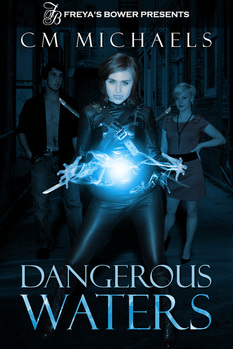 Dangerous Waters by C.M. Michaels For Emily Waters, a nature-loving, small-town girl with an overprotective father, heading off to Boston University to study conservation biology is a dream come true—until a chance encounter catapults her into a mythical world she’d do anything to escape. The latest victim in a rash of abductions near campus, Emily is brutally attacked before being rescued by a powerful new friend. She survives the ordeal, only to find herself held captive and presented with an impossible choice. While preparing for the unimaginable life she must now embrace clues soon emerge that Emily may not be entirely human, and her physical transformation awakens goddess-like powers that her new family cannot begin to explain. Dealing with her human first love, the not-so-platonic relationship with her coven “sister,” and her new vampire sort-of-boyfriend further complicates matters, not to mention being secretly hunted by the psychopaths who attacked her. And as the only known offspring of a once all-powerful race, the climactic battle is only the beginning of her journey. Social Media links: Facebook - http://www.facebook.com/UFAuthorCMMichaels Twitter - https://twitter.com/UFAuthor Website - http://cmmichaels.com/ YouTube - https://www.youtube.com/user/authorcmmichaels Book trailer: http://www.youtube.com/watch?v=z7Q7m0MrwlQ Buy links: http://www.cmmichaels.com/index.php/sisters-in-blood-series/dangerous-waters/ Amazon (Paperback): http://www.amazon.com/Dangerous-Waters-C-M-Michaels/dp/1617981044/ref=sr_1_27_title_0_main?s=books&ie=UTF8&qid=1378349287&sr=1-27&keywords=dangerous+waters Amazon (Kindle): http://www.amazon.com/Dangerous-Waters-Sisters-Blood-ebook/dp/B00EZY2046/ref=sr_1_28_title_0_main?s=books&ie=UTF8&qid=1378511032&sr=1-28&keywords=dangerous+waters Barnes & Noble (Paperback): http://www.barnesandnoble.com/w/dangerous-waters-c-m-michaels/1116827370?ean=9781617981043 Barnes & Noble (Nook): http://www.barnesandnoble.com/w/dangerous-waters-c-m-michaels/1116827370?ean=2940148669821 Freya’s Bower (Paperback): http://www.freyasbower.com/books-c-3/dangerous-waters-p-290.html Freya’s Bower (eBook): http://www.freyasbower.com/urban-fantasy-c-46/dangerous-waters-p-289.html All Romance eBooks: https://www.allromanceebooks.com/product-dangerouswaters-1280168-349.html Kobo: http://store.kobobooks.com/en-US/ebook/dangerous-waters-14 iTunes: https://itunes.apple.com/us/book/dangerous-waters/id700353081?mt=11 Excerpt included. Please click "Read More"!
|
Archives
March 2019
Categories |





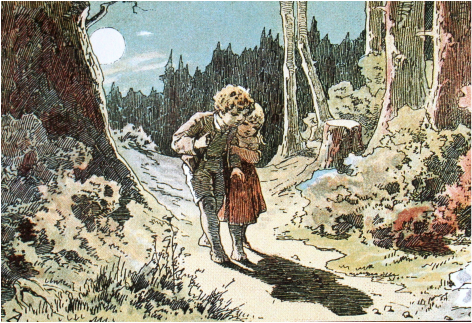
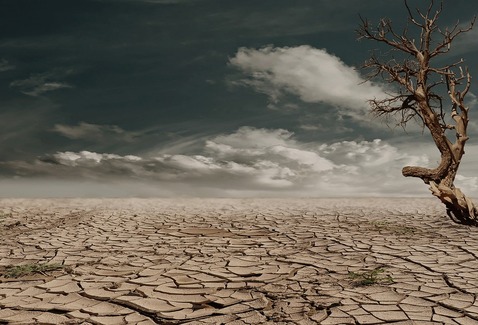
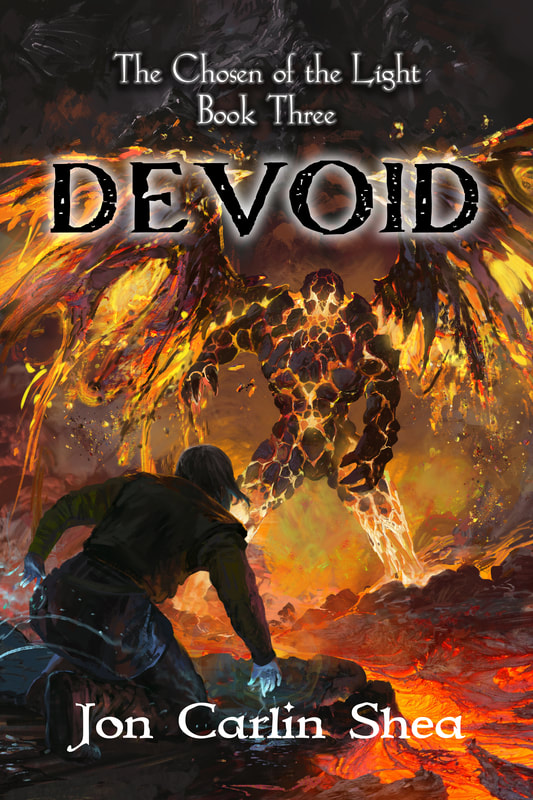

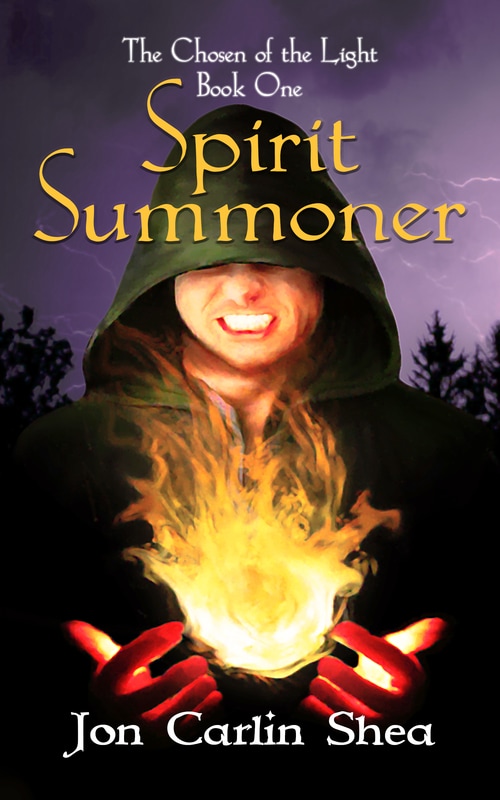
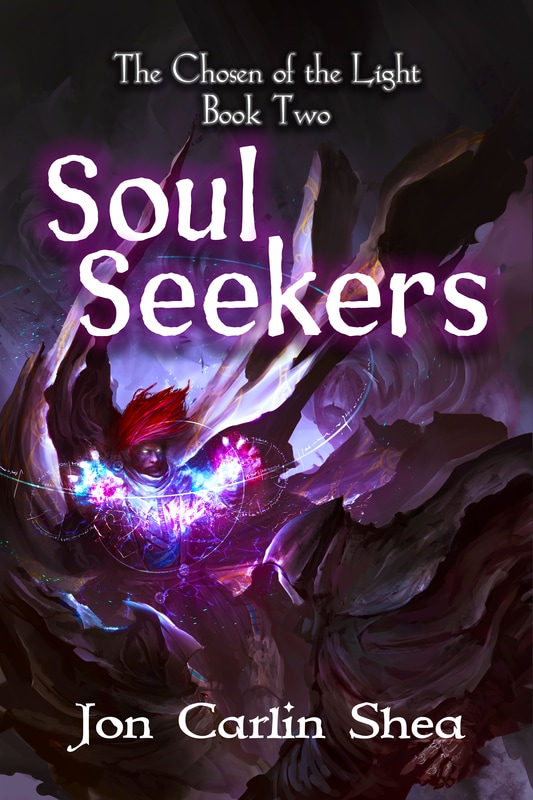
 RSS Feed
RSS Feed
